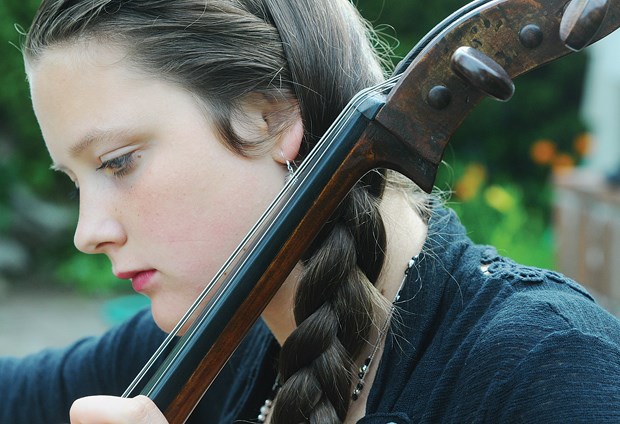Ambleside Orchestra performs at Highlands United Church on Friday, May 23 at 7:30 p.m. Admission by suggested donation of $20. Tickets: [email protected] or at the door.
He walked into the desert - away from the world.
(Woodwind chords.) Surrounded by wind and sand, Antar renounced all the humanity within him and denounced all the humanity without - but as often happens in these situations, that's when his gaze fell upon a gazelle.
(Flutes and piccolo.) A black bird swooped upon the running antelope.
Forgetting himself - or perhaps remembering himself - Antar raced to save the gazelle.
As readers of Arabian fairy tales might expect, the gazelle was something more than a gazelle, and when Antar slept that night the animal appeared to him as the Fairy Queen.
(A lush, sensuous theme.)
She promised him the three greatest pleasures in life: vengeance, power, and love.
That tale and its emotional aftermath is the basis for Nikolay Rimsky-Korsakov's Symphony No. 2, "The Antar Suite," a lush and powerful piece being performed for the first time in British Columbia by the Ambleside Orchestra.
The orchestra, now in its 22nd year, was founded by former Capilano University faculty member Hilary Clark.
"When I retired, I wanted a daytime orchestra to play in and there wasn't one, so I started one," she says, speaking with a vitality that belies her 83 years.
The orchestra has grown from 11 to 49 musicians, including Clark on flute and percussion.
She'd always wanted to play music, but it wasn't until retirement that she could devote herself to her passion.
After 22 years with the orchestra, Clark's fingers shrug off the coil of arthritis as she plays. The loss of dexterity may mean giving up flute for percussion, which doesn't require the same degree of fine movement, but it certainly doesn't mean giving up music.
"Music is my life. It's always in my head. If I'm not listening to it, it's there anyway. I wake up in the morning and the music I've been playing is going through my head," she says. "I don't know what people do who aren't involved in music."
The orchestra is in the hands of conductor Nicolas Krusek.
While rehearsing, the players watch Krusek's right hand for the piece's rhythm. Krusek's left hand is the orchestra's gatekeeper, letting each musician know precisely when to begin playing.
And while the musicians watch Krusek, he watches them.
Some conductor's listen while flipping through pages of score, but not Krusek, who conducts without a single written note in front of him.
"He took us through the first rehearsal without music and he would call out things like: 'Second clarinet in bar such-and-such, that should have been aB natural,'" Clark says, recalling jaws dropping around her.
Clark credits Krusek's incredible range of musical knowledge for expanding the orchestra's membership.
"You give your entire faith to this man, as a musician, because he knows more about your instrument than you do," Clark says.
It's not unusual for Krusek to remind a cellist they should be playing pizzicato (plucking the string) rather than arco (bowing).
"He's not a violinist, not a string player. .. but he knows all the instruments, and all the techniques for all the instruments."
The orchestra has long received $500 grants from municipalities including West Vancouver, but those days are over, Clark says.
"Now put that in your pipe and smoke it for an arts organization," she says. "We are making enough money to be self-supporting."
The orchestra generally requests $20 donations at their concerts and members pay $150 in annual dues. However, some of that money is used for grants, like the one earned last year by 15-year-old musician Ya-Lea Steenkamp, who "plays a cello like an angel," according to Clark.
Steenkamp is slated to perform Édouard Lalo's Cello Concerto in D Minor at the show.
When Clark isn't rehearsing with the orchestra or writing letters on the importance of a woman's right to an abortion, she reviews operas.
Despite having seen La Boheme many times over 50 years, Clark says she never gets to the end without crying.
It's just one more example of how music is deeply marbled into her life, almost like a genetic gift.
Her father sang in vaudeville and her three sons are carrying on in the family tradition: one plays in a jazz ensemble, another thrums bass for a rock group, and the third teaches band.
"I'm very blessed and I'm humble, too, because I'm not a very good flute player. But I keep working at it," she says.



